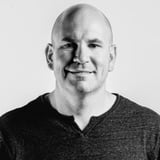Log in or create a free Rosenverse account to watch this video.
Log in Create free account100s of community videos are available to free members. Conference talks are generally available to Gold members.
Summary
The fatigue and trauma from events of the past few years has affected many of us – not just personally, but also professionally, and at the organizational level as well. For the most part, the corporate world has recognized the impact these past years have had on employees and teams. However, many organizations have only recently become aware of the longer-term effects and are struggling to support their people as they work through the long tail of trauma.
Key Insights
-
•
Trauma is a deeply individual experience and can manifest differently in each person.
-
•
Building rapport and having lived experience experts involved in research can minimize the risk of retraumatization.
-
•
Research methods should accommodate participants’ comfort, allowing for asynchronous communication where needed.
-
•
Cultural sensitivity is crucial; assumptions about comfort and body language can lead to misunderstanding during research.
-
•
Leaders in organizations must model healthy behaviors to create a trauma-informed environment.
-
•
Self-care for researchers is essential to navigate the emotional toll of working with trauma-affected populations.
-
•
It’s vital to question the ethics of research practices and ensure participants’ well-being is prioritized over data collection.
-
•
Constructing safe environments can involve creating 'chill zones' where participants can take breaks or process their emotions.
-
•
The concept of being trauma-informed is not a checklist, but a continued journey requiring ongoing learning and adaptation.
-
•
Organizational change towards trauma-informed practices starts with HR policies and leadership modeling empathy.
Notable Quotes
"Trauma is not just about external events; it’s also about how those events affect individuals' bodies."
"The core of being trauma-informed is a commitment to not repeat traumatic experiences."
"We all need to bring our whole selves into the room, including our traumas and our vulnerabilities."
"If we want to be trauma-informed, we need to challenge systems that perpetuate trauma, not just reform them."
"It's important to remember the difference between being trauma extractive versus trauma enriching."
"You cannot cure trauma, but you can become trauma resilient."
"Being trauma-informed is a continuous journey; it's about becoming, not a destination."
"When working with humans, assume everyone has the potential for trauma to show up in interactions."
"You need trusted voices in your research to help navigate potentially triggering topics."
"Creating a safe environment means allowing for pauses and breaks in conversations to minimize retraumatization."
















More Videos

"The very innovation you may need might already be written."
Jacqui FreyFlow and Superfluidity for Design Orgs
November 7, 2018

"Each time we communicate, we share in the basic need for human connection."
Laura Gatewood Laine ProkayBeyond Buzzwords: Adding Heart to Effective Slack Communication
September 23, 2024

"Confirmation bias makes it harder to be open-minded when interpreting research data."
Johanna KollmannInsights-Driven Product Strategy: Get your Research to Count
December 6, 2022

"If you feel like there's a lag, we want to know about it."
Bria AlexanderDay 3 Welcome
September 25, 2024

"If you can get all of the people in an organization rowing in the same direction, you could dominate any industry."
Billy CarlsonIdeation tips for Product Managers
December 6, 2022

"Don’t underestimate the power of storytelling in conveying users’ needs to stakeholders."
Catherine DubutBridging Physical and Digital Spaces: Approaches to Retail Service Design
March 18, 2021

"Values-driven design Ops cultivates the sense of belonging within teams."
Kim Holt Emma Wylds Pearl Koppenhaver Maisee XiongA Salesforce Panel Discussion on Values-Driven DesignOps
September 8, 2022

"What's the last bad experience you had with another discipline?"
Adrian HowardSturgeon’s Biases
September 25, 2024

"Our work can't be evaluated in the same way that engineering work can."
Asia HoePartnering with Product: A Journey from Junior to Senior Design
November 29, 2023



















